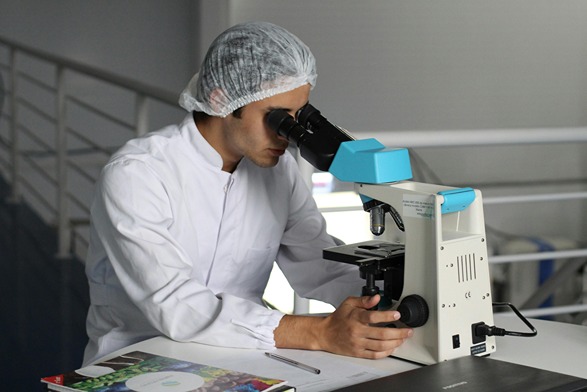Photo by Pixabay from Pexels
Molecular diagnostics is reshaping the future of healthcare by providing innovative ways to diagnose diseases early and accurately. Molecular diagnostics refers to tests that detect specific sequences in DNA or RNA, identifying genetic mutations, infectious agents, or abnormalities in cells. These tests are transforming how doctors diagnose and treat various conditions, offering a more precise and personalized approach to patient care.
The Role Of Molecular Diagnostics In Disease Detection
Molecular diagnostics plays a pivotal role in identifying a wide range of diseases, from genetic disorders to cancer and infectious diseases. This technology is especially beneficial in detecting conditions early, even before symptoms appear. By analyzing molecular markers, molecular diagnostics can provide a detailed view of a patient’s genetic profile, helping doctors understand the underlying cause of a disease. For example, in cancer, molecular tests can detect mutations in cancer cells, guiding personalized treatment strategies for the patient.
Key Applications Of Molecular Diagnostics
Molecular diagnostics is widely used in various medical fields, including oncology, infectious diseases, and prenatal testing. In oncology, it helps identify genetic mutations responsible for cancer growth, allowing for targeted therapies. In infectious diseases, molecular diagnostics can quickly identify pathogens like bacteria or viruses, enabling timely treatment and reducing the spread of infections. Additionally, it’s used in prenatal testing to detect genetic abnormalities in unborn babies, offering critical information to expectant parents.
Benefits Of Molecular Diagnostics
One of the biggest advantages of molecular diagnostics is its ability to provide early detection, which can improve treatment outcomes significantly. Early detection allows doctors to start treatments sooner, often before a disease progresses. Additionally, molecular diagnostics supports personalized medicine, tailoring treatments based on a patient’s genetic makeup. This precision can lead to more effective therapies with fewer side effects. Furthermore, these tests are faster and more accurate than traditional diagnostic methods, making them invaluable in urgent medical situations.
Challenges And Future Prospects
Despite its numerous advantages, there are challenges that molecular diagnostics faces. The cost of these tests can be high, and not all healthcare systems have easy access to the technology. However, as the field continues to advance, costs are expected to decrease, and accessibility should improve. Looking ahead, molecular diagnostics has the potential to revolutionize healthcare even further by developing more advanced tests that can detect diseases earlier, improving patient outcomes globally.
Conclusion
In conclusion, molecular diagnostics is transforming healthcare by providing early, accurate, and personalized disease detection. From cancer treatment to identifying infectious diseases, this technology is helping doctors offer more effective care. As the field continues to evolve, it will likely play an even larger role in shaping the future of medical diagnostics and patient care.
Similar FAQ
Can molecular diagnostics detect infectious diseases
Yes, it can quickly identify viruses and bacteria, allowing for timely and effective treatment.
What is molecular diagnostics
Molecular diagnostics refers to tests that detect specific sequences in DNA or RNA to diagnose diseases and conditions.
How does molecular diagnostics work
It works by identifying genetic markers or mutations that are linked to specific diseases, allowing for early and precise diagnosis.
Why is molecular diagnostics important
It enables early detection, personalized treatment, and faster diagnosis, improving patient outcomes.
How accurate is molecular diagnostics
Molecular diagnostics is highly accurate, providing precise results compared to traditional diagnostic methods.
What are the benefits of molecular diagnostics
Benefits include early detection, personalized treatment, faster results, and more accurate diagnoses.

